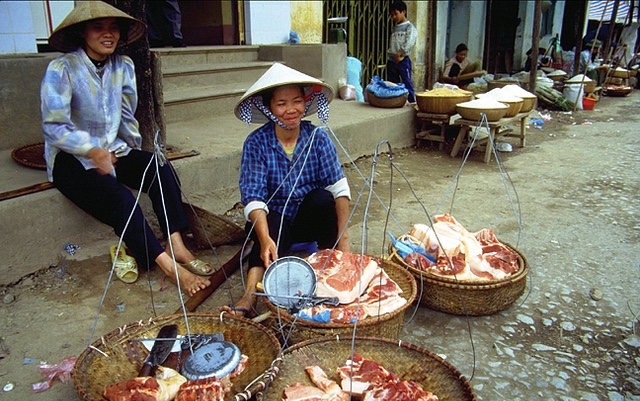Agricultural development policies and interventions that ignore gender dynamics miss opportunities to maximize benefits, including increasing resilience to climate change and variability. As more policy-makers and development practitioners acknowledge the importance of addressing gender in their work, they can draw on a growing body of research that highlights key entry points for more effectively integrating gender.
A new article in the International Journal of Agricultural Sustainability, “Addressing gender in agricultural research for development in the face of a changing climate,” summarizes key research on gender and climate change conducted under the CGIAR Research Program on Climate Change, Agriculture, and Food Security (CCAFS). This work, which draws on different data sources and methodologies, shows that women’s contribution to increasing climate resilience is limited by several important factors: A lack of access to information; formal and informal institutions that limit women’s response options; a lack of access to natural and productive resources; and limited decision-making authority, among other constraints.
Studies across a range of sites have consistently identified these broad barriers, but the extent to which specific factors hinder women’s involvement in climate-smart agriculture (CSA) depends largely on the local context. This new research provides guidance on the key factors that should be considered in the context of a particular region or project, including gender differences in access to information and technology, perceptions of climate risks, and preferences for responding to climate changes and threats.
The study also highlights several remaining research gaps and identifies areas for future study and potential approaches.
First, while there is now information on gendered preferences for CSA practices and improved understanding of the causes of gender differentials in the capacity to respond to climate risks, the distribution of costs and benefits of different CSA practices among members of the same household remain under-studied. Second, there is insufficient information on the potential outcomes from women’s engagement in climate resilience programs. Third, while we understand many of the barriers to access and adoption of climate-smart options that meet women’s needs, challenges remain on how to cost-effectively overcome these across varying local contexts.
Gaining insight into these questions will require rigorous qualitative work that grounds quantitative data within local contexts, action research that promotes joint learning between researchers and the communities in which they work, and new methods for collecting data over longer periods of time (such as ICT-based survey tools) in order to track changes in outcomes for men and women.
Ultimately, promoting gender-transformative, climate-smart solutions not only increases the likelihood of achieving positive gender-related outcomes, but also of reducing poverty and increasing sustainability. Achieving these goals requires greater collaboration between and among research organizations and implementing partners to share knowledge, tools, and approaches. It also requires building capacity on gender within key organizations, such as government agencies, as other recent CCAFS supported research has shown. Only then will future programs, projects, and investments adequately address climate change concerns while meeting the needs women and other vulnerable segments of society. Better integrating research and practice, and designing information, tools, practices, interventions, and M&E strategies with gender in mind can accelerate progress towards achieving many development objectives, while enabling women to become agents of their own empowerment.
Elizabeth Bryan is a Senior Research Analyst in IFPRI’s Environment and Production Technology Division.







